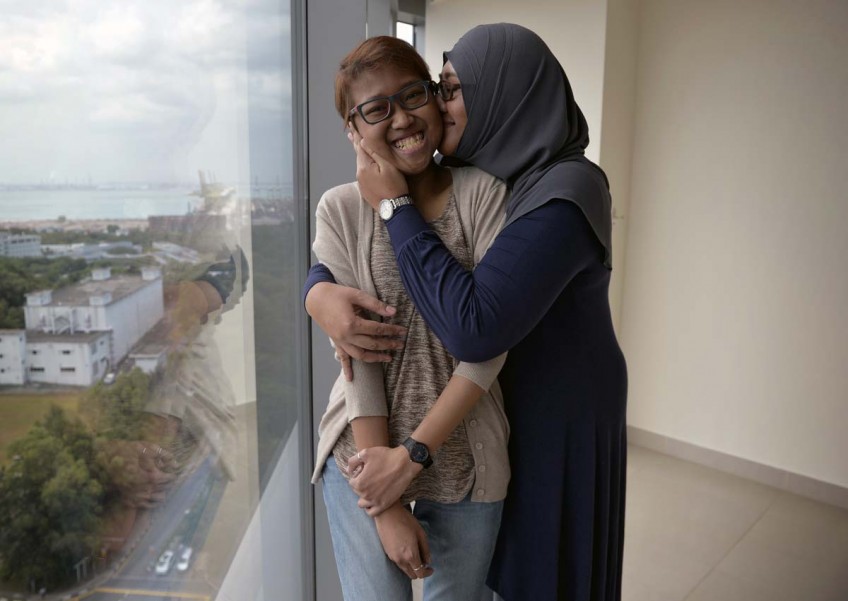First paired kidney exchange transplant done in Singapore


WHEN doctors said that her daughter needed a new kidney, Noor Rafidah Nasir immediately volunteered one of her own.
But then came the bad news - she and her daughter, Siti Rasyidah Lokman Hadan, were not a match.
"I was heartbroken," recalled the 47-year-old housewife.
"I cried."
Then, doctors approached her in August 2014 with a novel proposal, known as a paired kidney exchange transplant.
Someone had come forward wanting to donate a kidney to a stranger and was found to be a match for Ms Siti.
In exchange, her mother would have to give one of her kidneys to a person on the national waiting list.
Ms Siti, 23, became Singapore's first recipient of such a transplant in April last year, at the National University Hospital (NUH).
The procedure has been approved since 2009 but has never been carried out until now, due to the lack of pairs who were both willing and medically fit.
"Between 2009 and 2014, nobody entered the pair exchange registry... and there was a lack of enthusiasm from patients," said Professor A. Vathsala, who is the co-director of the National University Centre for Organ Transplantation at NUH. For example, some feared that they would donate a kidney only to find that the one received by their loved one did not work.
Currently, there are 450 patients on the waiting list for a new kidney.
The average waiting time is around eight or nine years.
Each year, two to three people offer to donate their healthy kidneys to strangers - as in Ms Siti's case - but, in general, only one is found suitable in the end.
Ms Siti has systemic lupus erythematosus - a condition in which the immune system mistakenly attacks the body - and was born with abnormal kidneys.
By 15, she was having regular dialysis. At 22, her condition had deteriorated so much that her doctors were on the brink of carrying out the mismatched transplant despite its many risks.
However, Ms Siti's medical condition meant that doing so would further weaken her and leave her susceptible to various infections.
Ms Siti used a wheelchair for four years but can now walk. "Being able to walk was a big thing for me," said the oldest of four children. She plans to take her A-level examinations this year.
She does not know who donated the kidney to her. Nor does her mother know who received her kidney.
But mother and daughter are glad for the chance to pay it forward. Said Ms Siti: "It's only natural that after I get something, we give something in return."
linettel@sph.com.sg

Get MyPaper for more stories.